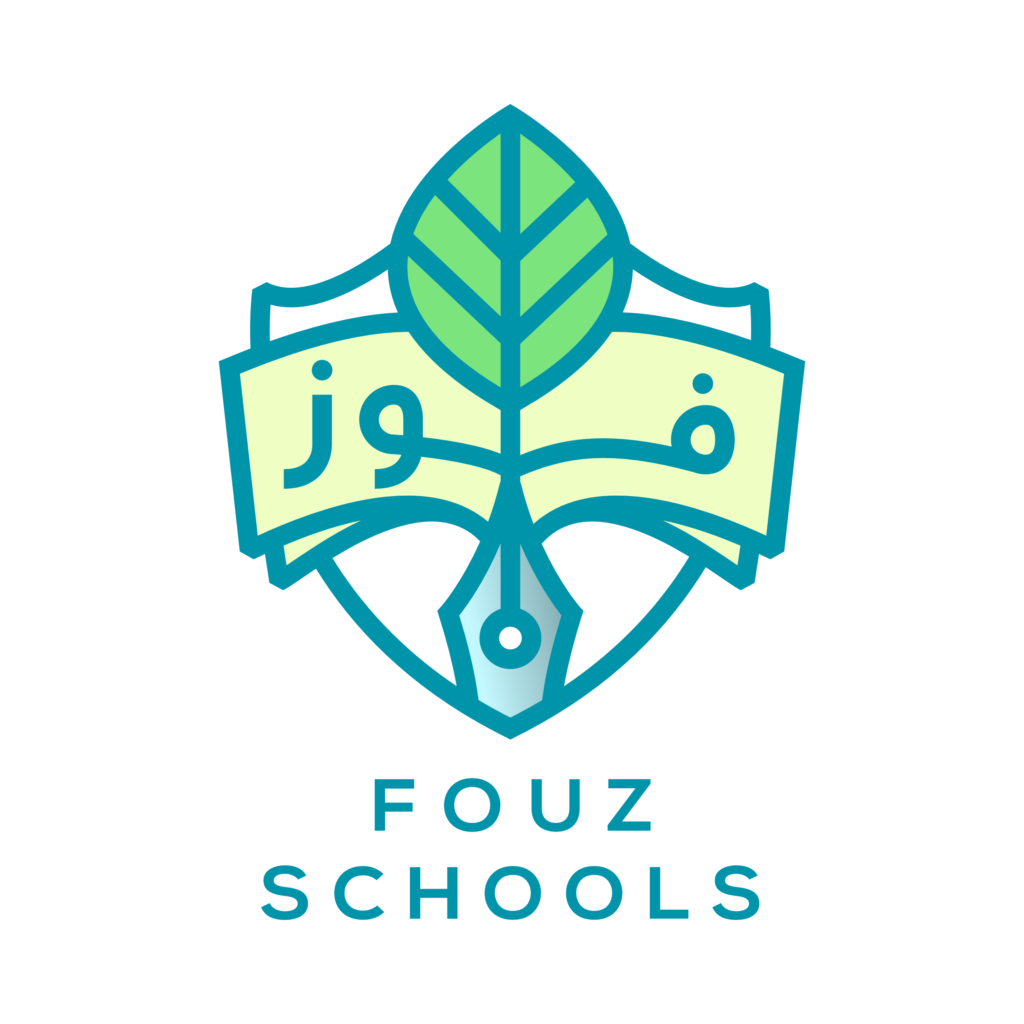Curriculum
We cover 4 main subject areas: Qur’an recitation, Islamic Studies, Arabic language and memorisation.
In our learning pathway, students start at 5 years of age in the Early years class then go to Foundation Qur’an before moving up the levels until 16 years old.
Early Years
The principal objectives for this year are to embed social, emotional and educational foundations for children who are experiencing their first year in madrassah learning.
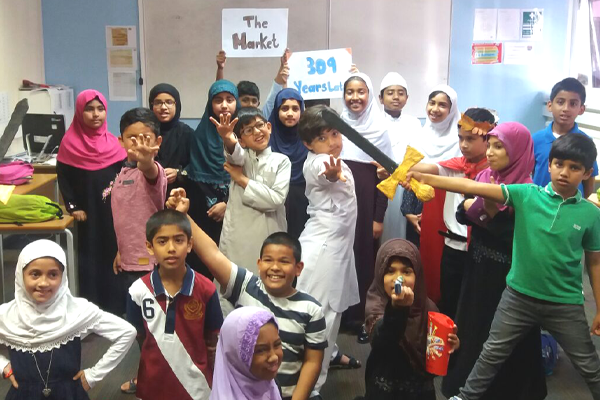
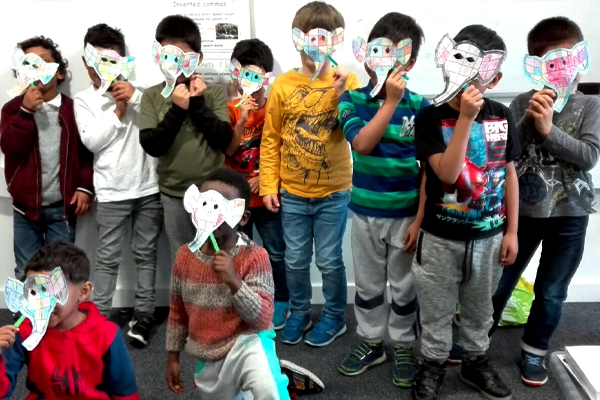
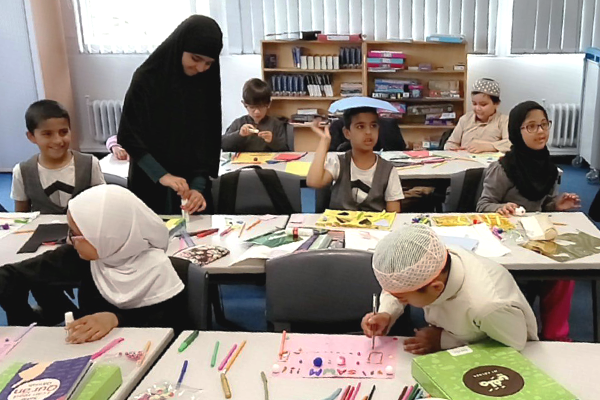
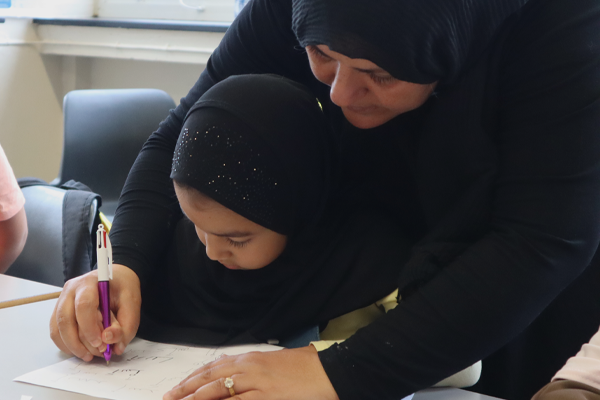
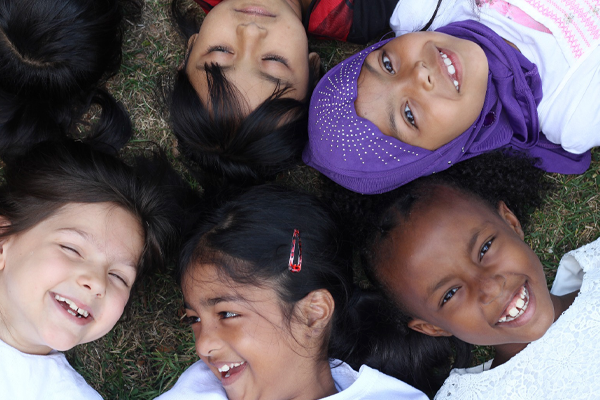
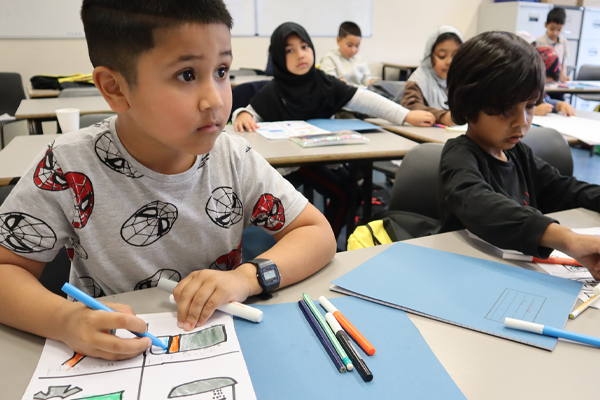
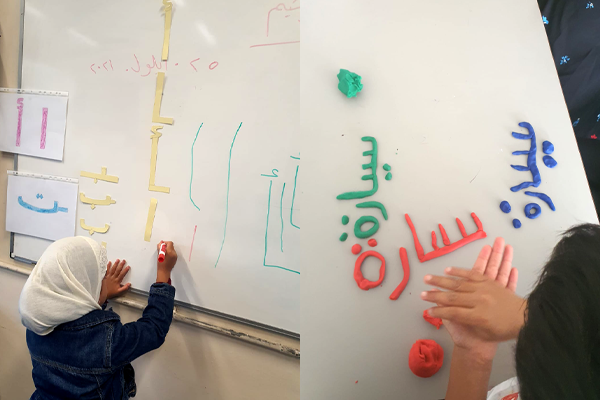
Our Method
Children of this age are ready to develop excellent values and align their consciences with the presence of Allah and knowledge of the unseen. Teachers facilitate this gently in a fun and caring way.
- The two key goals are: Fun and Friendship. Students should enjoy and be eager to attend whilst making friends within our classroom setting. If not then we are failing somewhere.
- Qur’an/Arabic: Milestone 1 – accuracy and confidence in letter recognition and pronunciation in whole and joint forms. Writing Arabic letters. Basic Arabic vocabulary and numbers.
- Islamic studies: Five pillars of Islam, 6 articles of faith, stories of prophets Adam (as) and Nuh (as).
- Memorisation of 5 surahs. Fatihah, Naas, Falaq, Ikhlas, Lahab.
Activity types are song, arts, crafts and games. Students are led to learn through play but will also begin to develop some independent study skills in preparation for the following years.
This programme is designed for 5-year-olds who are normally in year 1 in primary school.
Students turning 5 soon may be considered based on assessment of independence and ability to engage.
Foundation Qur'an
Children are best suited to master the difficult knowledge of recognition, pronunciation in the abstract Arabic script within the ages of 6-7. Delaying and prolonging this can have a negative effect on childrens’ motivation and attitude.
This programme has been successful in enabling students to master Qur’an foundations within a year since it started. Alhamdulillah. By Easter they are reciting from larger surahs in Juzz Amma and we celebrate by throwing a big graduation party.
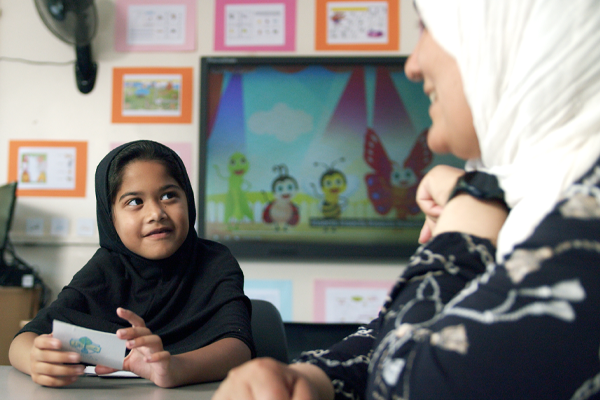
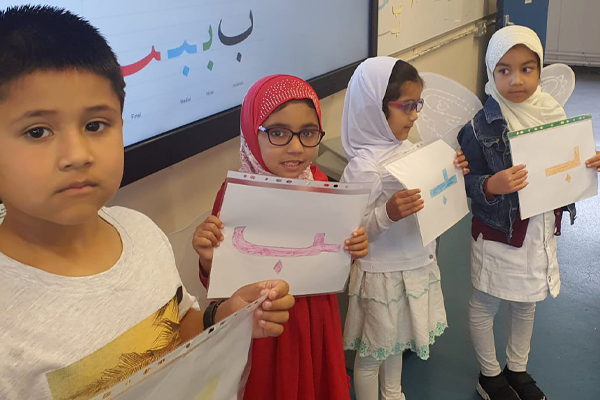
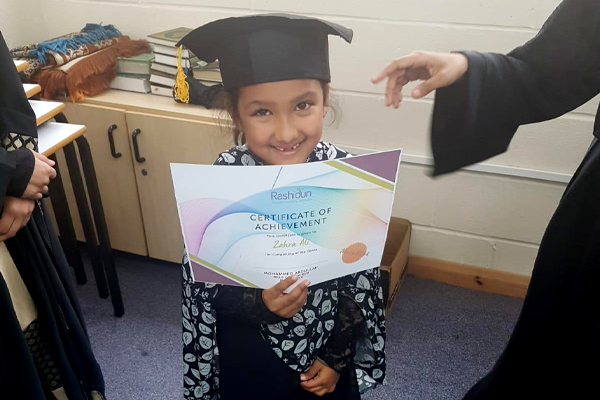
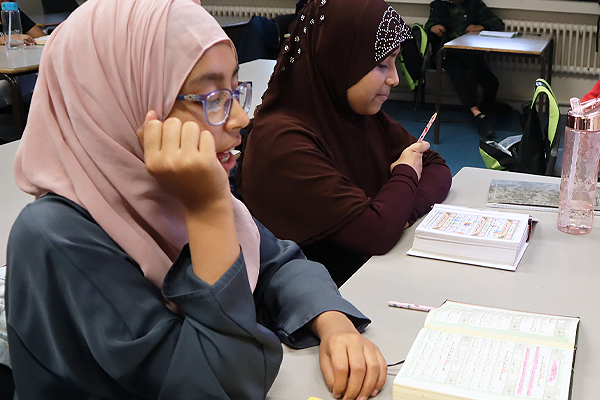
Our Method
The foundations are taught through various games and group activities throughout the day. Students work in groups of 4 or 5. Doing it this way builds confidence, pride and motivation to work more on their recitation in later years.
We use diverse methods to suit the different material and different learner types:
- Cooperative and competitive learning
- Visual, auditory, reading and kinaesthetic learning (VARK)
Our well thought out learning games give students gentle and steady progression through 4 stages of learning:
- Theoretical,
- auditory/visual,
- visual/reading,
- consolidation
Islamic studies – completion of Safar Academy Year 1 syllabus.
Memorisation of 5-10 surahs. Including recap of surahs learnt in the previous year.
Qur'an Recitation
Although especially important to us devotionally, learning recitation (without the meaning) is a very abstract skill. Recitation lessons can be very boring for students and sitting in lessons is physically and mentally demanding. Students’ motivation and productivity can be adversely affected, especially younger children. We want students to be motivated and love recitation.
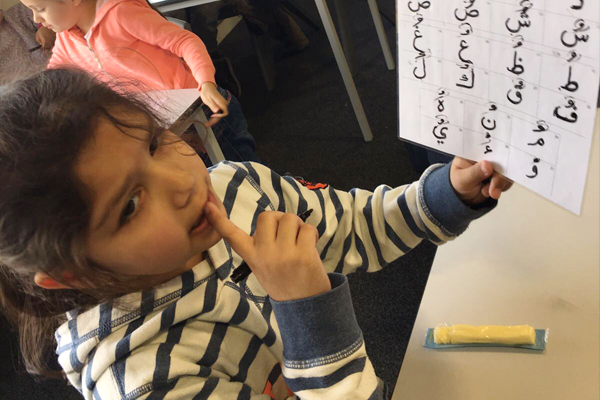
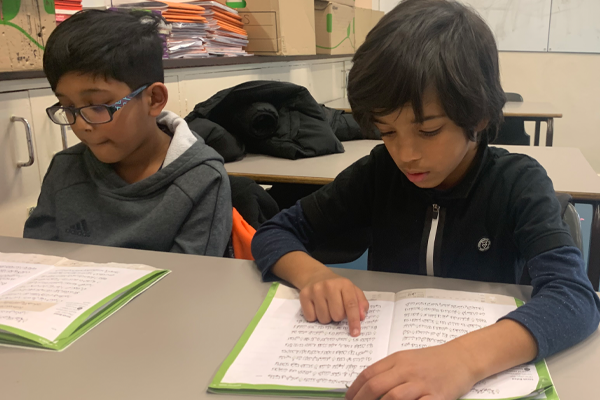

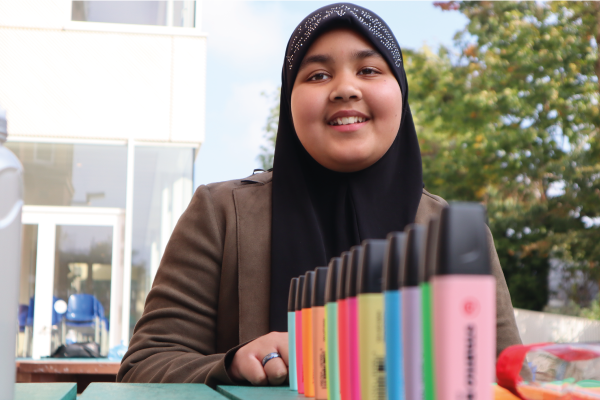
Assessment led traditional methods where much of the teachers’ time is spent on testing passages of recitation (sabaq) provide much less learning support in the classroom or for homework. The burden on parents to teach topics at home is higher and students need work individually for lengthy periods of time.
We want students to learn to recite swiftly, enjoy learning and develop a reverence for reciting the Qur’an.
Our Method
Skills & Milestones
We have broken recitation learning down into milestones. Each milestone is distinguished by the grouping of naturally complimentary skills that take the reciter to a new level in their journey of learning. We measure recitation progress by skills acquired by students. Not by quantity covered.
For example:
Milestone 1: Reading letters
Milestone 2: Reading words
Milestone 3: Reading sentences
Milestone 4: Reading with intermediate tajwid, and so on.
Activities & Group Learning
We use a holistic approach to teaching the skills within each milestone. Grouping learning objectives to be tackled simultaneously through innovative and engaging group activities.
This saves time, makes recitation more stimulating and gives sight of end goals to students quicker. The lesson is led by collaborative learning activity and progress is monitored by continuous assessment.
Examples of learning games/activities: Relay reading, Jumble jar, Bingo, Speedy builders.
Students spend majority of lesson time productively learning the new concepts and consolidating in groups. Homework is then set for further consolidation and fluency building. Consolidating familiar material at home reduces the burden from students and parents contributing to greater confidence and motivation. That’s how it should be.
Islamic Studies
The most important subject for our children today. Our children need to accept Islam as a way of life that they can relate to and can commit to living by. They must feel confident in their faith and values and build resilience to counteracting ideas they will face in life.
We teach the knowledge and mastery of worship, faith, history, and Islamic character with an appreciation of reasons and connection to Qur’an and Sunnah. A core element of learning is the emphasis on the importance and virtues of adhering to lessons learned; to nurture Taqwa and a spiritual connection with Allah. Students should have an internal motivation to practice their faith and be proud of it.
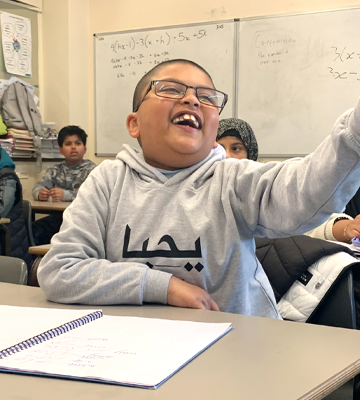
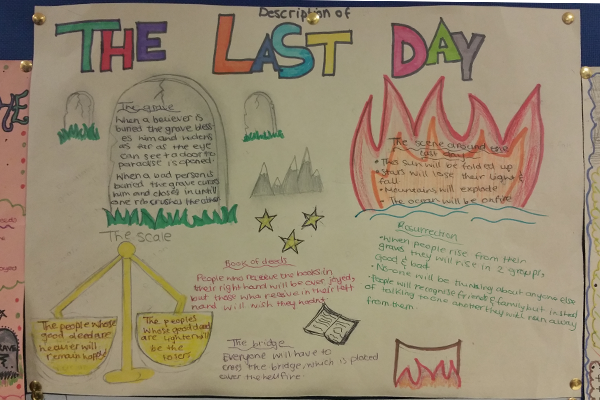
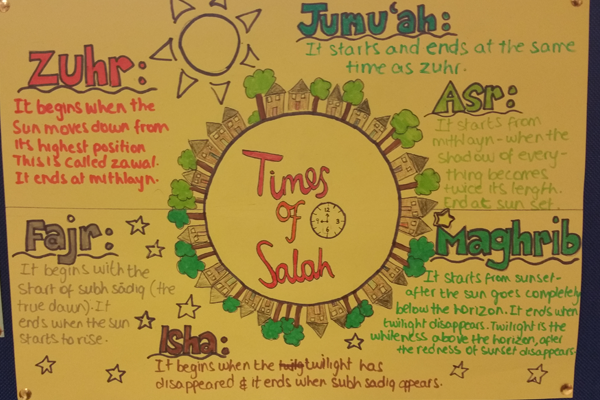
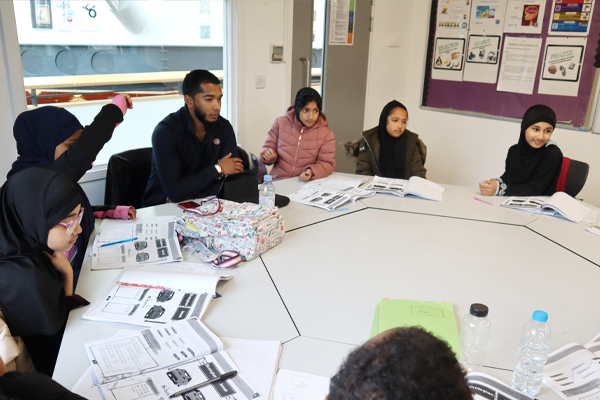
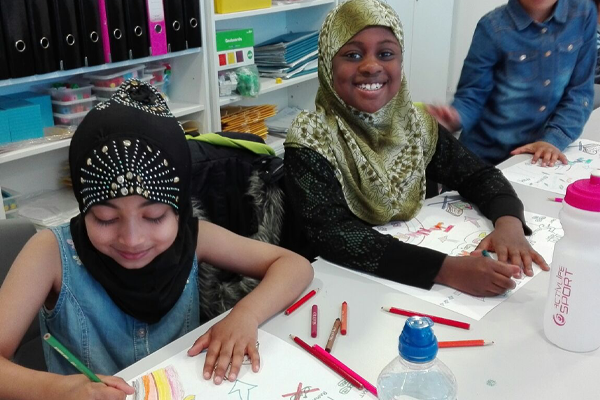
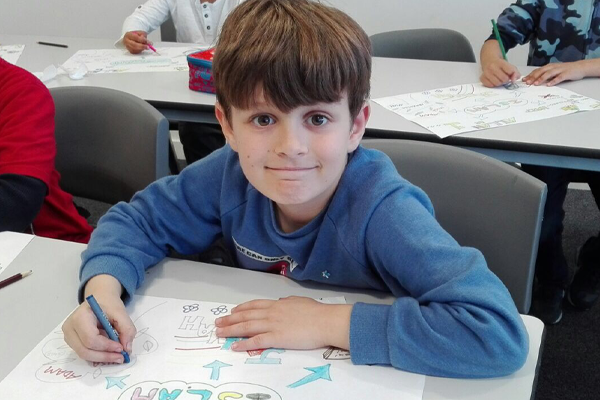
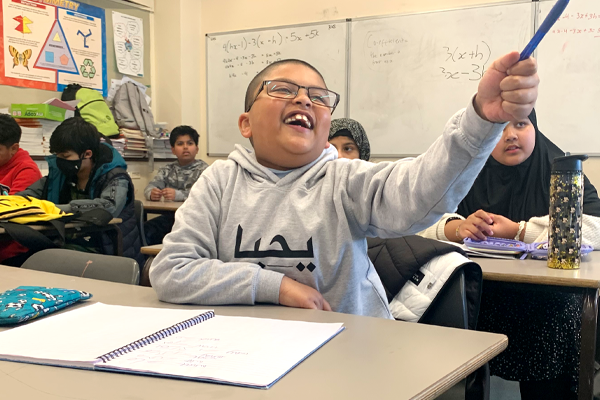
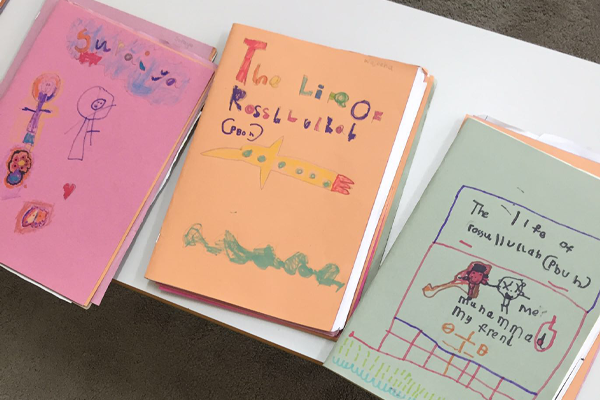
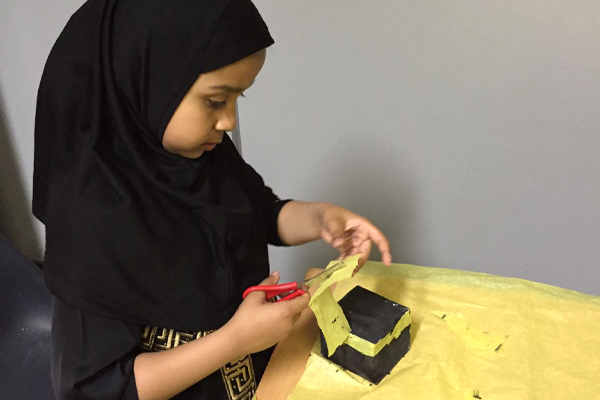
Our Method
Studying our faith, done well is fun, engaging and inspiring. For this, learning must be student centered, experience based and relatable. That’s how our prophet Muhammad (pbuh) taught. Our teachers facilitate this by fulfilling curiosities, encouraging students to think critically and training students to apply knowledge in new situations. The classroom is a safe space for objections and enquiry, in fact students are lauded for it.
Arabic Language
Our Arabic syllabus is taught by native Arabic speaking teachers from around the Arab world.
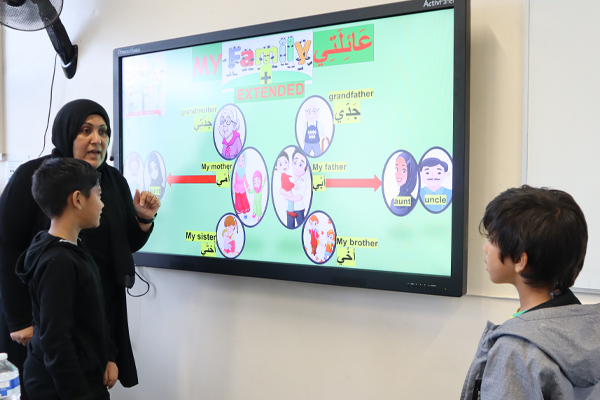
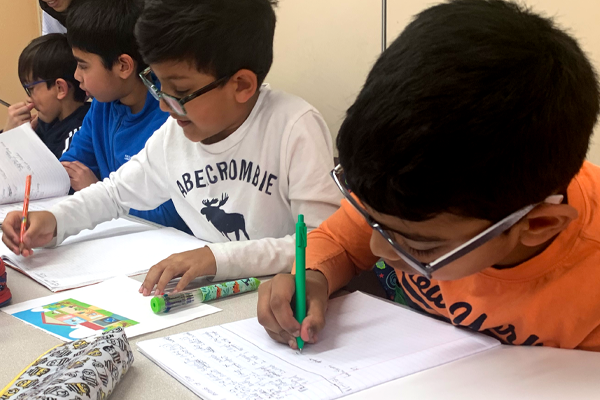
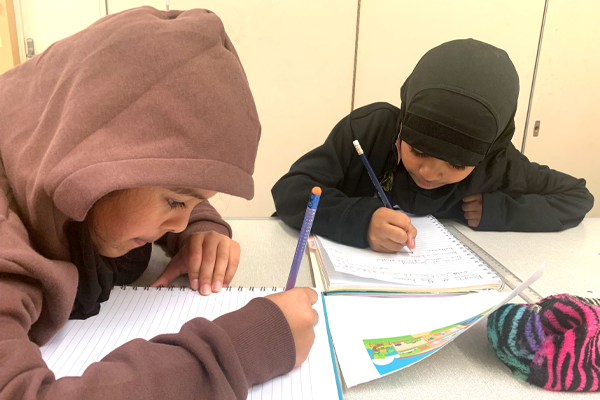
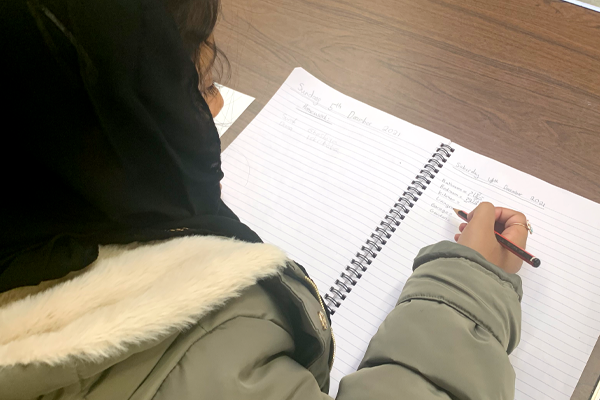
Our aim is to open a pathway for students understand the Qur’an and the duas we read in salah and fasting, hajj and all areas of worship.
This is to give an added enrichment and devotion to their connection with Allah when praying. An ideal outcome would be for them to love the language and continue to study in future years.
The Arabic syllabus includes:
- Qur’an translation
- Reading and writing
- Speaking and listening
- Grammar and composition
We expect our students to be able to read and write basic classical Arabic in their time with us. A target text example is shown in the passage below.
Memorisation
Memorisation of Qur’an and duas is essential to being able to perform regular acts of worship such as salah, janazah and supplications Friday or times of seeking closeness to Allah.
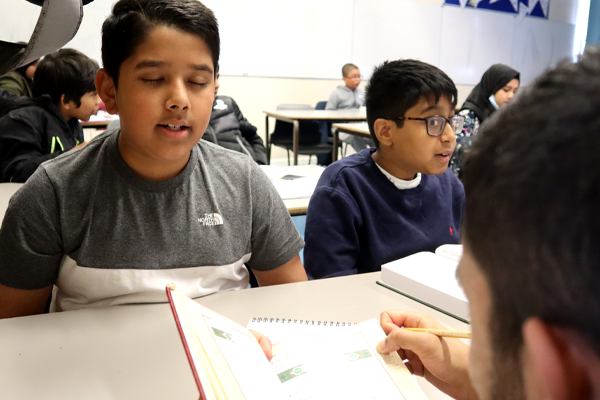
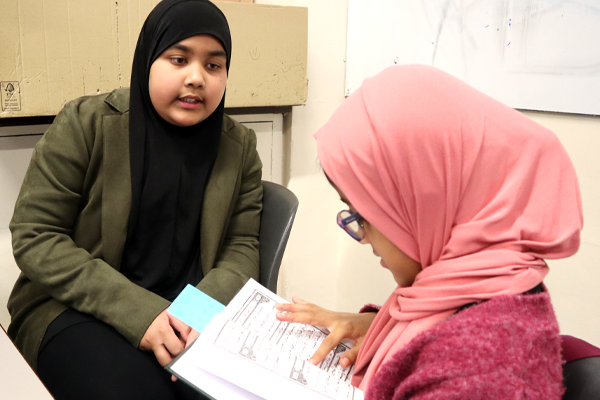
Our Method
Memorisation Technique
In the beginning memorising Arabic scripture can be quite a challenge for British children but it gets easier with support, hard work and the blessings of Allah. We teach students essential memorisation techniques to give them a structured approach and long term retention.
Download our free guide to memorisation.
Syllabus
Students memorise essential surahs and duas in priority order. They are taught the context, and usage of surahs in Islamic Studies when covering topics of Salah, Ramadhan etc.
Targets and Progress
We expect students to memorise an average of 10 new short surahs per year. Short articles should take 2 to 3 weeks on average. Students memorise in pairs and groups in lesson. More advanced students memorise independently.
After memorising 30th and then the 29th Juz students memorise large surahs e.g. Yasin, Kahf etc.
Learning Pathway

